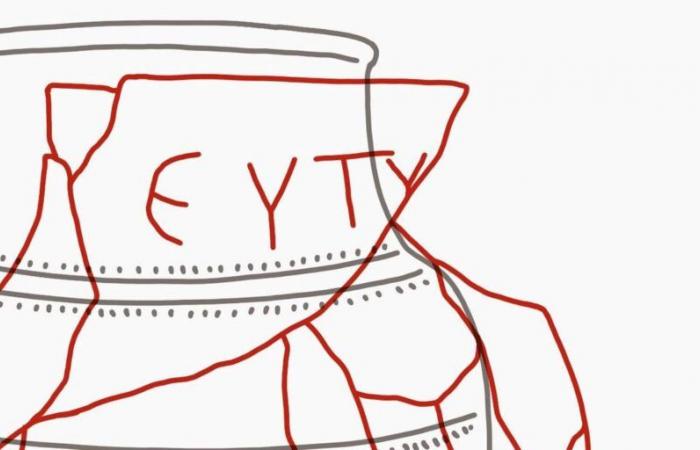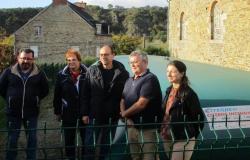– Alexandre Glikine surveys the Valais of Antiquity
Every week, Michel Audétat recommends a book that made him think, amused, moved…
Michel Audétat
Published today at 9:49 a.m.
Subscribe now and enjoy the audio playback feature.
BotTalk
The historian and Hellenist Michel Aberson (born in Geneva in 1956) taught ancient history at the Universities of Geneva and Lausanne. Author of scholarly texts that may relate to Latin epigraphy or the Alps in Antiquity, he sometimes goes off on a tangent under an assumed name: Alexandre Glikine. Under this pseudonym he published a collection of six short stories inspired by contemporary Greece, “Richter 6.5”, published last year by Presses Inverses. And the same publisher is releasing one of his novels today: “Alypios” (revised and corrected version of a text first published in La Différence in 2009). It is striking. Brief, tense, almost hypnotic sentences. We admire that the novel is so intense with such economy of means.
We are in the romanized Valais of the IIIe century AD. “A dark century,” states a note from the author, which leaves room for imagination. Son of the governor of the Valley, Alypios is a handsome aristocrat steeped in Greco-Roman culture and “sometimes cruel”, whom his slave Eutyches secretly desires. A coup d’état occurs, the slave saves his master, they flee to the mountains and the roles are now blurred. The slave here is the narrator; he holds the reins of the story as he holds the destiny of his master in his hands. Their alpine ride is grandiose. It’s an understatement to say that the reader works; he runs breathlessly behind the two fugitives who are trying to escape their pursuers, but not the sensual ardors which torment them.
Alexandre Glikine’s novel replays in its own way the dialectic of master and slave. The slave Eutyches gradually humanizes his master, Alypios, who will emancipate his slave literally and figuratively: he offers him freedom, but also the written language and words that make him dream of other worlds, of Alexandria , Samos, the Aegean Sea and its dolphins. These words, however, sow confusion. With them, the object of Eutyches’ desires will move.
To read: “Alypios”, Alexandre Glikine, Presses Inverses, 144 p.
Did you find an error? Please report it to us.
0 comments
Swiss






